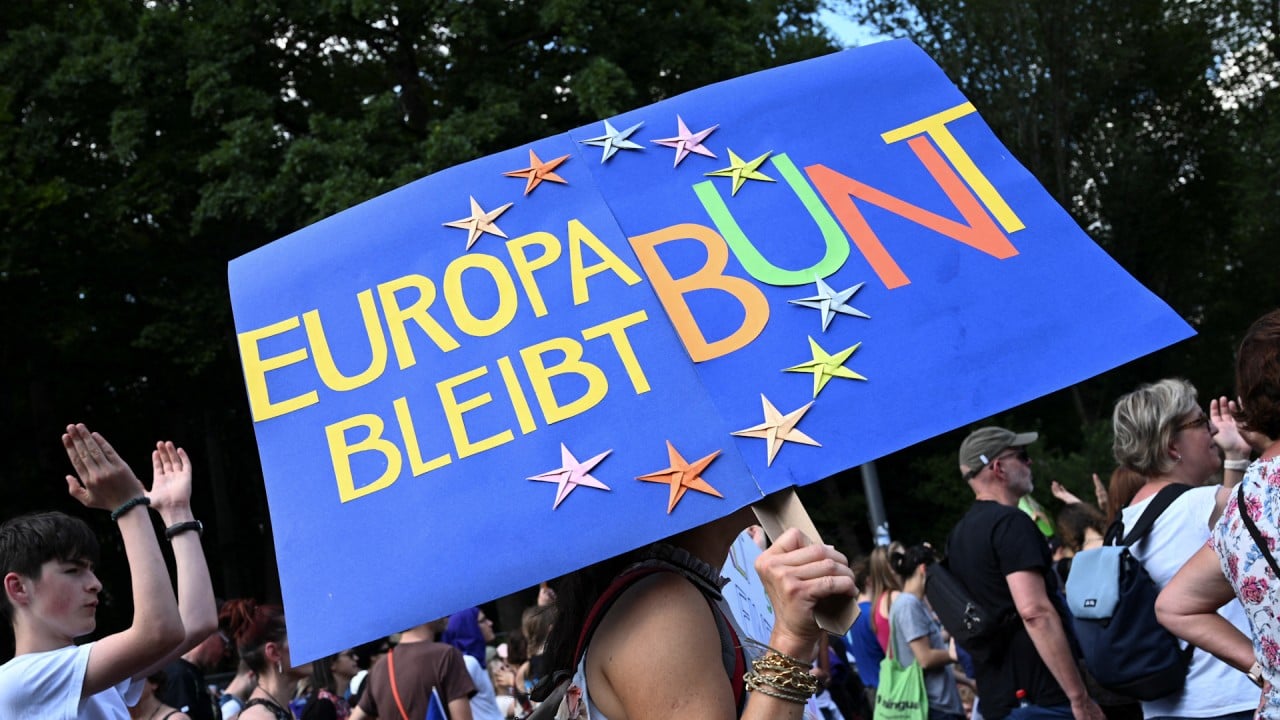According to Burns, Chinese officials had interfered in 61 public events organised by the US embassy in Beijing since November.
“This is also our experience,” Toledo told a panel at the World Peace Forum organised by Tsinghua University.
“We thought when the Covid restrictions were over, we will be able to meet Chinese professors freely again, Chinese students freely again, Chinese think tanks freely again.
“No we can’t. They all need authorisation to meet us, and sometimes [the] authorisations don’t come.”
EU-China ties had become “more intense”, Toledo said.
“I wouldn’t say they have improved. They are in a difficult moment.”
He also defended the EU move to impose punitive tariffs of up to 38 per cent on electric vehicles imported from China, calling the measure “fact-based” and “quite reasonable”.
The EU says its move was prompted by “market distortion” caused by overcapacity and lower prices in China’s green and hi-tech sectors on the back of huge state subsidies. But China has dismissed the claims and repeatedly urged the bloc to lift the tariffs.
China chose not to attend the summit, he said, even when it focused on things that were important to the world’s second-largest economy, including humanitarian and food security issues.
Beijing’s reasoning was that the conference did not meet its criteria, such as having Moscow at the table.
“This was extremely disappointing,” Toledo said of China’s absence, stressing that the Ukraine war was an “existential” issue for Europe.
“I must say that the Russian aggression in Ukraine … has caused tremendous damage to the image of China. The fact that China didn’t participate in Geneva has done even more damage,” he added.
“When we look across the Atlantic, we can see our allies, the United States, helping. When we look East and at China, we are seeing a China that is not helping.”
Bruno Angelet, the Belgian ambassador to China, also said the Ukraine war remained one of Europe’s top priorities, while questioning China’s approach of staying “neutral” in the conflict.
“So if you say you are neutral, the principle that you cherish … has been violated, and the UN Charter has been violated,” he added. “We are deeply worried and we would love to see China engaging with us on getting a solution.”
For Shi Mingde, a former Chinese ambassador to Germany, EU-China ties were still marked by cooperation but the concern was whether they could remain stable, given “major changes” on either side.
Economics and trade, he noted, used to be the key pillars of the relationship, but issues involving national security, geopolitics and ideological differences had increasingly come to shape EU policy towards Beijing.
“This needs our attention. If this phenomenon continues, it will cause great damage to China-EU relations,” he told the same panel, adding that Beijing disagreed with the bloc’s view of China as a cooperation partner, economic competitor and systemic rival.
On Russia, Shi said Europe had “completely equated China with Russia”, which was a “wrong” view.
Mutual trust needed to be improved, and differences should be properly resolved through dialogue, the seasoned Chinese diplomat suggested.
“This is the main way to resolve conflicts and frictions. We must prevent trade disputes from escalating and falling into a vicious cycle, and we must prevent a large-scale trade war between China and Europe.”


